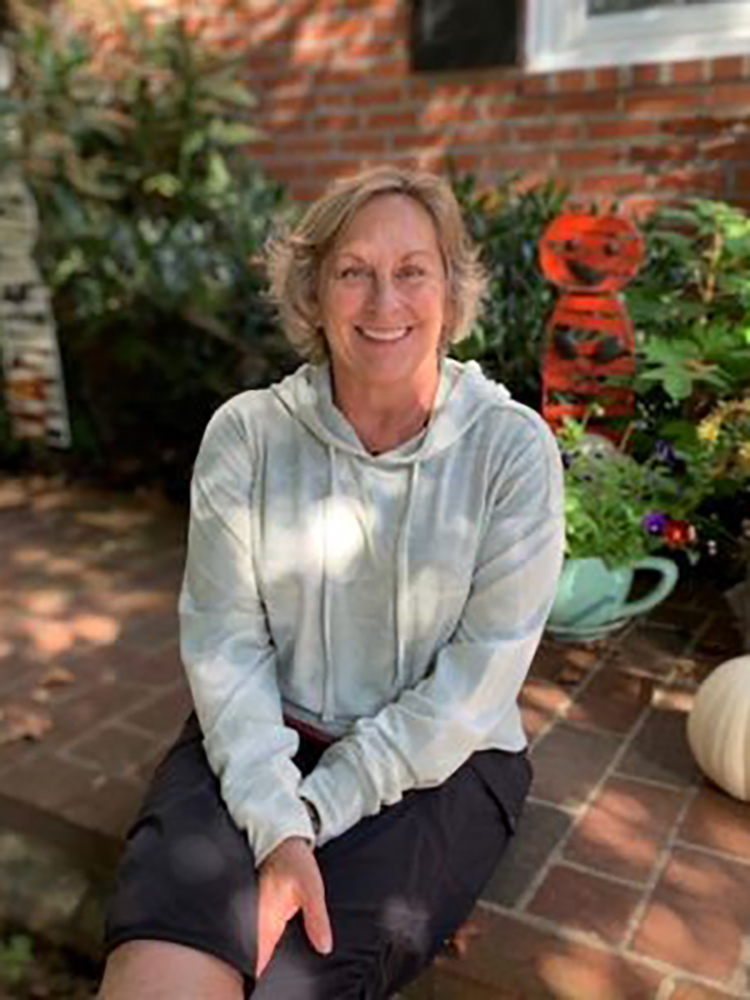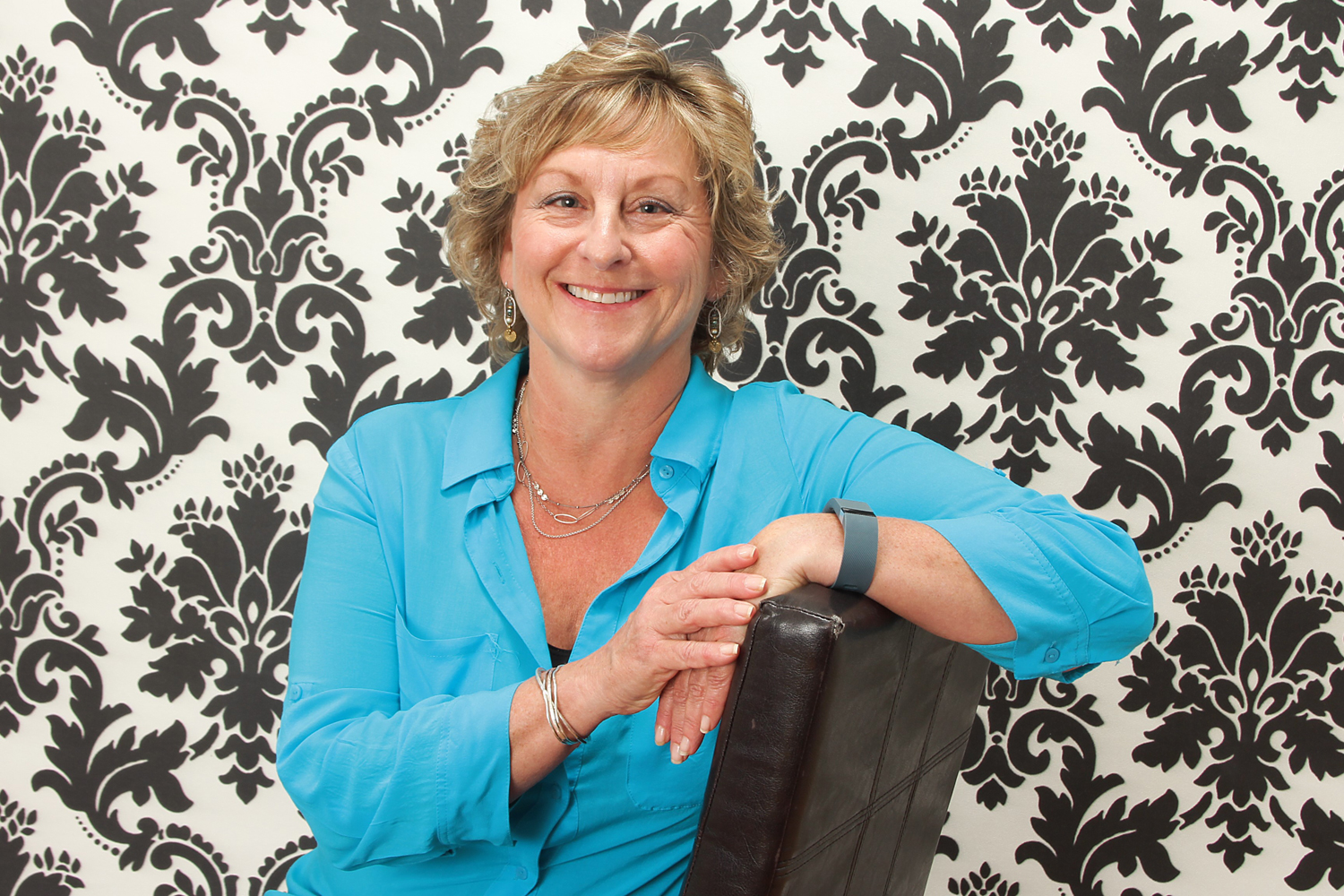AS A CLINICAL SOCIAL WORKER who advises people facing a cancer diagnosis and the treatment and survivorship that follow, I always say the journey doesn’t go in a straight line. If you weren’t adaptable before the diagnosis, I tell them, you will be learning how much change you can deal with when you walk on this path.
I learned this lesson the hard way. In the spring of 2013, I went for my annual gynecological exam. Because I was in my early 50s, my doctor asked if I had gone through menopause. I thought I had, but when I mentioned I had occasional spotting, she immediately suggested an endometrial biopsy. I responded just as quickly that I felt she was overreacting. In my 20s I had undergone a biopsy for a different reason, and I knew it was no picnic. We compromised on getting blood work to see if I was actually in menopause. If the test showed I was, I would get the biopsy. The blood work did confirm I was in menopause, and my Pap smear came back abnormal. I got the biopsy, and it confirmed that I had cancerous cells in my uterus.
I own a business called Body Esteem. I am a clinical social worker and also a certified personal trainer. At the time of my diagnosis, I mostly worked with people who had weight and body concerns. We looked at the whole person: nutrition, exercise, their relationship to food and how they feel about their body. I exercised every day and adhered to a healthy diet. I believed that if a person did all these things, cancer could be prevented.
This was my first lesson about cancer: It doesn’t necessarily follow the rules! Doing everything right to help prevent cancer doesn’t guarantee it won’t happen.

Photo courtesy of Cathy Nobil-Dutton
At my first meeting with an oncologist, he asked if anyone else in my family had ever had cancer. Both of my parents had colon cancer when they were in their 50s. My mother had it again in her 70s. By the time of her second diagnosis, doctors had developed a greater understanding of Lynch syndrome, a hereditary condition that raises your risk for several cancer types. Her care team recommended she be tested for it, and the result showed she carried a mutation in the MLH1 gene that connotes Lynch syndrome.
I had not been tested for Lynch syndrome before my diagnosis, even though my mother had wanted me to be, I was concerned that if I tested positive, I would be uninsurable if I needed to get my own health insurance. My mother’s Lynch syndrome diagnosis came years before the Affordable Care Act, which barred health insurance plans from denying coverage because of preexisting health conditions. Prior to that, insurance companies could charge higher rates or refuse to cover people with preexisting conditions. After my diagnosis, however, at my oncologist’s suggestion, I went for germline genetic testing that confirmed I had inherited Lynch syndrome.
This was my second lesson about cancer: I had to accept that, with Lynch syndrome, my life going forward would always involve doctor appointments and tests to try to identify cancer in the early stages. In the days after I was first diagnosed, I thought I would have my surgery and treatment and then go back to my regular life. Now I felt I would never be free of my cancer. I have to admit this was a tough realization for me.
My third lesson about cancer came when results from a more extensive biopsy I had to undergo before my hysterectomy revealed I had clear cell uterine carcinoma, a less common and faster-growing cancer type than the usual adenocarcinoma. My initial thoughts that this would be over after a round of treatment gave way to worries that it could rapidly become life-threatening.
I have always considered myself to be pretty aware of health-related issues. I am a reader and a researcher. But all the knowledge I had accrued didn’t prepare me for what was to come during treatment. I had an extremely difficult time with pelvic radiation. It caused a lot of gastrointestinal distress. I told my doctor what was going on and he tried to help, but we just couldn’t get the side effects under control. Toward the end of my treatment, I ended up in the emergency room with my electrolytes completely out of whack and tests showing my heart was being affected. This was not how I anticipated my radiation treatment would play out! One more example that cancer is not linear.
My posttreatment life has been about adapting to the surveillance requirements for Lynch syndrome and dealing with long-term treatment side effects I had not anticipated. Not what I expected when this journey began.
I am always aware of the possibility of having another cancer in my lifetime. This causes a certain amount of anxiety when I have my yearly testing done. I have had to learn to live with that uncertainty. Everyone who has had cancer lives with the fear of recurrence. I put a lot of effort into managing this fear and helping others understand and manage it too.
Cancer Today magazine is free to cancer patients, survivors and caregivers who live in the U.S. Subscribe here to receive four issues per year.





